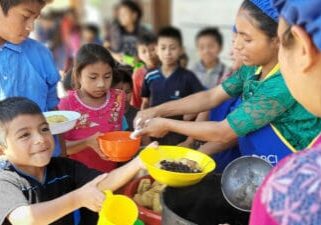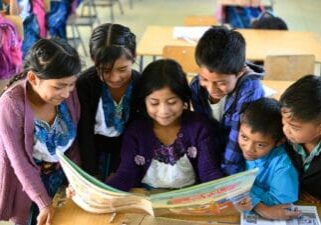News > Blog
School Feeding Interventions as a Tool for Addressing Child Malnutrition: Experiences from Tanzania, Guatemala and Madagascar
Published 05/28/2024 by Global Communities
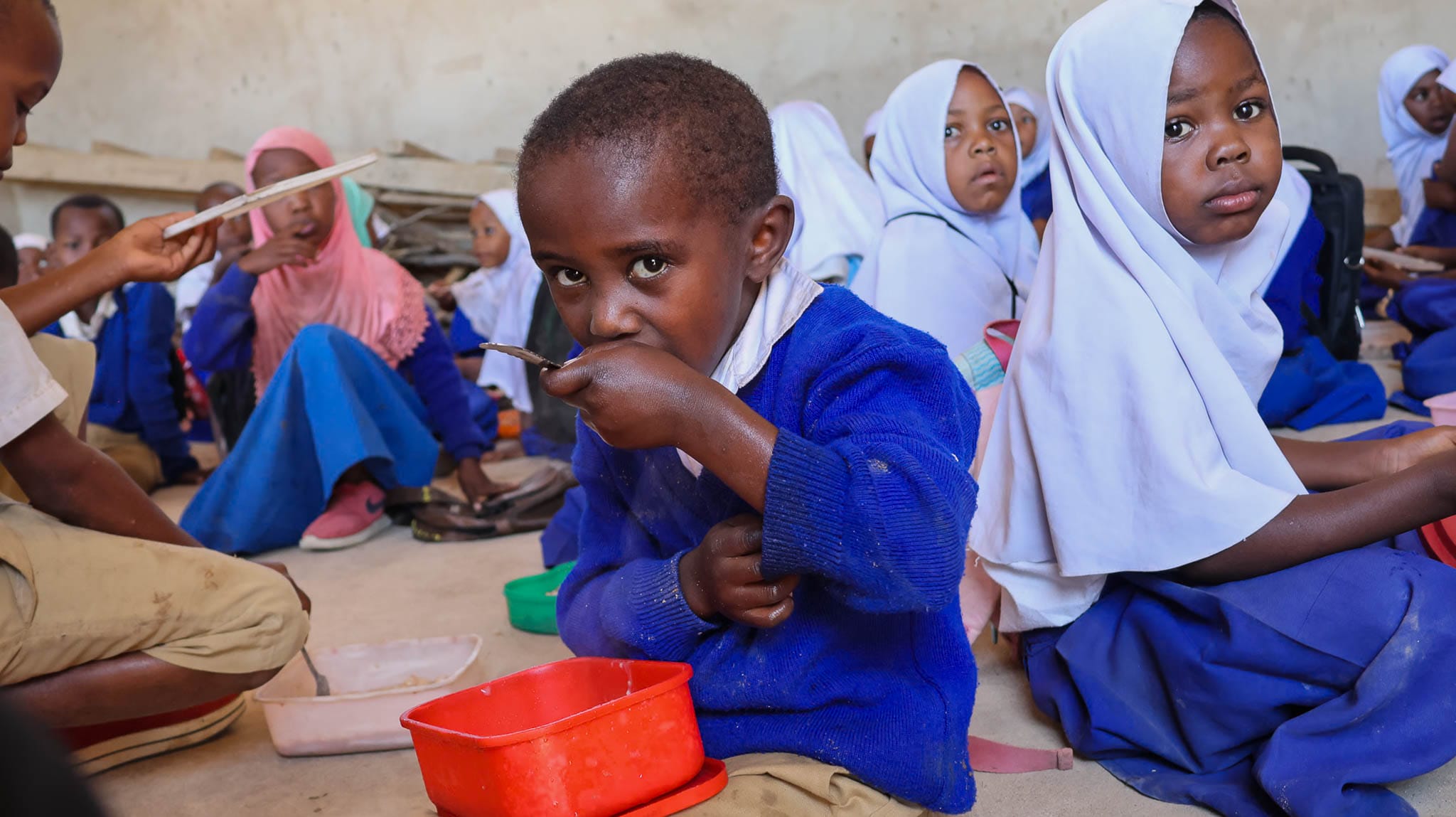
By Betty Adera and Chloe Pan
Malnutrition remains a pressing global issue, affecting millions of children and impeding their growth, development and well-being. It manifests in various forms, including undernutrition, micronutrient deficiencies and obesity. Each form has severe consequences for children. In 2022, the World Health Organization estimated that globally, 149 million children under five were stunted (too short for their age), 45 million were wasted (underweight for their height), and 37 million were overweight or living with obesity. Undernutrition contributes to nearly half of the deaths in children under five, predominantly affecting low- and middle-income countries.
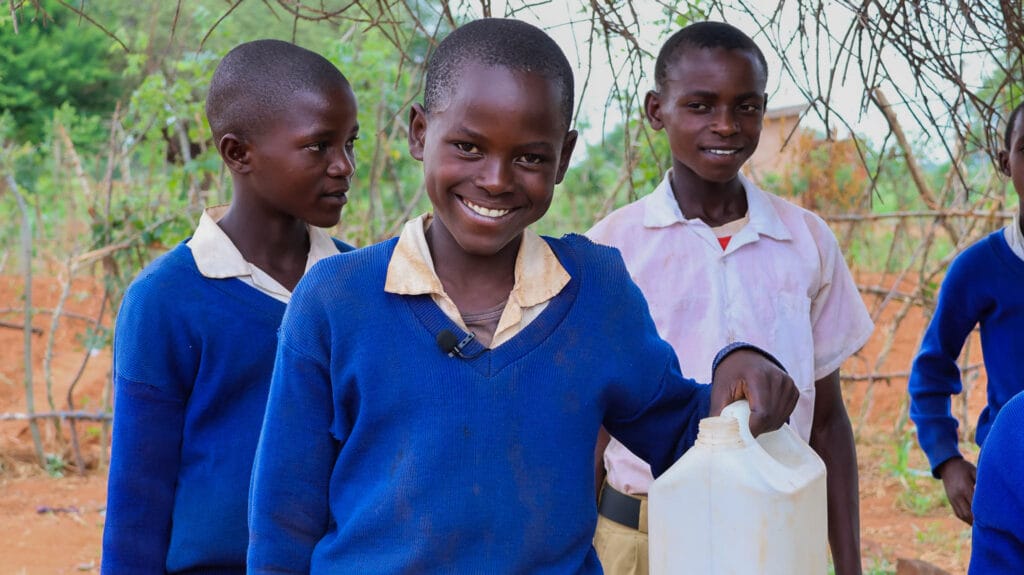
School feeding programs can be an effective strategy to address these challenges. They reduce hunger, expand children’s access to nutritious foods and improve dietary diversity. They also promote optimal health, hygiene and nutrition behaviors among schoolchildren, their parents and teachers. In addition, school feeding creates a ripple effect, mobilizing communities to support children’s development and benefiting their educational outcomes. School feeding contributes to improved school attendance and retention, and serves as a catalyst for increased attentiveness.
On this World Nutrition Day, we share our approach to school feeding interventions in the fight against malnutrition among children and adolescents.
Our Integrated School feeding approach
Global Communities began implementing school feeding programs in 2002 with funding from the United States Department of Agriculture (USDA). As a trusted USDA partner for over two decades, we have carried out 16 McGovern-Dole International Food for Education and Child Nutrition (McGovern-Dole) and three Local and Regional Procurement (LPR) projects in Bolivia, Central America, Madagascar and Tanzania.
USDA’s McGovern-Dole Program improves education, child development and food security in low-income countries around the world. The program donates U.S. agricultural commodities and supports maternal and child nutrition projects through financial and technical assistance.
Global Communities’ McGovern-Dole and LRP programs champion an integrated and multidisciplinary approach to school feeding, which extends far beyond international food assistance.
While ensuring that students have access to daily nutritious school meals remains our top priority, we work to improve school infrastructure and curriculums, encourage healthy behaviors, promote climate-resilient agricultural practices, and invest in early child development interventions.
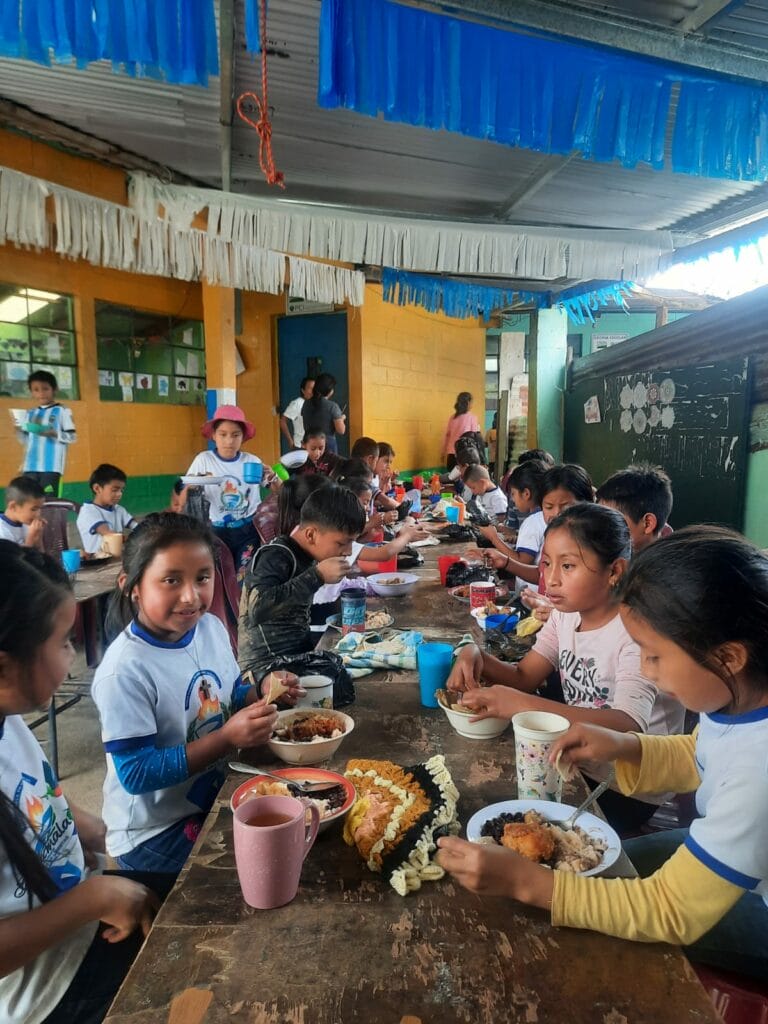
In addition, we mobilize local communities to gradually transition to locally owned school meal programs and reduce reliance on USDA-donated food commodities. For example, we support school gardens, which get fresh produce straight into classrooms and help children develop healthier eating habits. We also link schools with local farmers to incorporate locally grown foods to school meals. We involve parents, teachers and community members in our efforts, too, and we work with governments to develop policies that support school feeding. This promotes sustainability and lasting impact of our programs. Our support for smallholder farmers also boosts local economies.
Global Communities’ approach is comprehensive, student- and community-focused, gender-responsive and adaptable to the unique needs of each country, school and community.
How School Feeding Interventions Improve Child Nutrition and Development
Global Communities’ school feeding programs ensure that children eat at least one nutritious meal each day. These meals are often fortified with essential vitamins and minerals, addressing both macronutrient and micronutrient deficiencies. By doing so, they help combat stunting, wasting and other forms of undernutrition.
Global Communities’ school feeding programs offer daily nutritious school meals to more than one million students in over 3,800 schools in sub-Saharan Africa and Central America.
Proper nutrition is crucial for brain development and physical growth. Well-nourished children are more likely to have better cognitive abilities, higher concentration levels and improved academic performance.
In addition, our programs encourage school attendance. For many families, the assurance that their child will be fed at school provides a strong incentive to prioritize education over other responsibilities.
Highlights from Our School Feeding Programs
Global Communities is implementing Mianatra (“learn” in Malagasy) – USDA’s first McGovern-Dole school feeding program in Madagascar. To supplement rice and beans served in daily school meals, Mianatra has set up 154 school gardens. Over the last 6 months, students and their parents have harvested more than 3,700 pounds of fresh vegetables, including zucchini, spinach, onions, tomatoes and orange-flesh sweet potatoes.

The project also conducts cooking demonstrations for parents, exploring different recipes that incorporate local foods and include at least five products from the list of recommended food groups. These activities have created a fun and engaging environment for families to learn about different agricultural and cooking techniques, and to introduce new vegetables to household diets. Many parents have committed to replicate these new practices at home.
In Guatemala, Global Communities is implementing the Unidos project, building upon lessons learned from our previous programs, EDUCAMOS and MAS. These projects created 20 school meal menus and awareness raising tools to guide the preparation of nutritious meals in participating schools in the department of Huehuetenango.
Unidos leverages these successes and collaborates with the Guatemalan Ministry of Education to design new school meal menus in alignment with the national school feeding law.
Between October 2023 and March 2024, Unidos procured 27.57 metric tons of local foods, including fresh fruits, vegetables and eggs, which complemented USDA-donated commodities and enriched diets of more than 10,000 students from 78 schools.
Unidos also supports maternal, newborn and child health by delivering take-home rations to mothers of children under five and pregnant women in rural areas. In addition, the program provides counseling on complementary feeding, guidance on monitoring children’s development and nutrient supplementation.
We are also implementing a school feeding program in Tanzania. The Pamoja Tuwalishe (“Together, Let’s Feed Them” in Swahili) program aims to provide school meals for over 300,000 preschool and primary school students in 351 schools across nine districts of the Mara and Dodoma regions. Furthermore, the program supports the rollout of the National School Feeding Guidelines.
Commitment to Evidence and Learning
Global Communities approach to school feeding is multisectoral and embraces a culture of learning. For example, between 2018 and 2021 we partnered with the Harvard T.H. Chan School of Public Health, Purdue University, the Africa Academy for Public Health and the National Institute of Medical Research-Mwanza to implement a peer group-based behavior change intervention, Engaging Fathers for Effective Child Nutrition and Development in Tanzania (EFFECTS). EFFECTS was a 5-arm cluster randomized trial conducted in the Mara region. The results demonstrate that engaging couples (compared to mothers only) and bundling nutrition and parenting interventions have many benefits, including improved child and maternal dietary diversity.

“Our findings generate novel evidence that, with the right approach, materials, and ongoing support, community health workers can deliver gender-transformative bundled nutrition and parenting interventions to couples in low-resource community settings with potentially synergistic positive effects on household gender relations and maternal and child well-being.” – Lauren Galvin, Former Senior Advisor at Global Communities
School feeding is a powerful tool in combating malnutrition and supporting child development, offering immediate and long-term benefits for children and communities. As Global Communities marks this year’s World Nutrition Day, we reaffirm our commitment to supporting and expanding school feeding programs, nourishing children and building a world where no child goes to school hungry.

